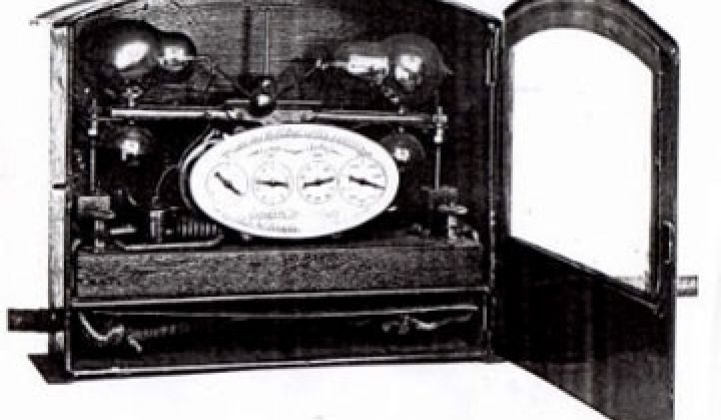The smart grid backlash started last year in Fresno. We covered it in October of 2009.
PG&E announced its formal customer outreach today, soon after testifying in Sacramento on the details of its smart meter problems. Such is the geological pace at which utilities move.
But the problem wasn't really technological issues with the smart meters; tests revealed that only about one percent of the smart meters had some sort of mechanical deficiency, and even fewer had accuracy issues. Compare that to the three percent of analog "dumb meters" that suffer from inaccuracy and other issues. You don't hear a lot of lawsuits or conspiracy theories about analog meters. According to PG&E, 99 percent of the smart meters that were installed operate exactly as intended.
In this case, the problem was more cultural -- and more about poorly handled public relations. Utilities view hardware like transformers and power plants and yes, meters, as assets, and tend to forget that there's a paying customer attached to that meter. And they tend not to do a lot of community outreach.
But smart metering is proving to be different, and it means utilities are going to have to transform their culture -- at least a little bit. We saw that point clearly demonstrated today in a fairly unique and well-attended press conference.
The press conference was held to announce the public availability of an "excruciatingly detailed" 700-page document reporting the monthly smart grid reports from PG&E, the leading smart grid meter roll-out utility, to the California Public Utility Commission (CPUC) (you can download and read the document here in your ample spare time).
But the real thrust of the press conference was to apologize to the public and try to begin to regain the trust of the 50,000 or so utility customers who were negatively impacted by the utility's smart grid deployment. In attendance, presumably for moral support, were representatives from IBM, Symantec, Landis&Gyr, and Eric Dresselhuys from Silver Spring Networks.
Repeated apologies came from Helen Burt, PG&E's vice president and chief customer officer, along with pledges to restore customer faith in PG&E. It sounded earnest and honest, albeit a bit tardy.
Burt listed steps that the utility is taking to make the smart meter deployment process more transparent and proactive:
- A dedicated smart meter call center
- 165 new customer representatives
- Revamped information service around smart meters
- Holding meetings in communities where meters are being installed -- before they're installed.
Burt said, "We are absolutely committed to smart meters and to regaining customer trust. Smart meters are the foundation for new tools to help customers reduce bills, improve energy efficiency, restore outages and better integrate renewable energy and electric vehicles."




